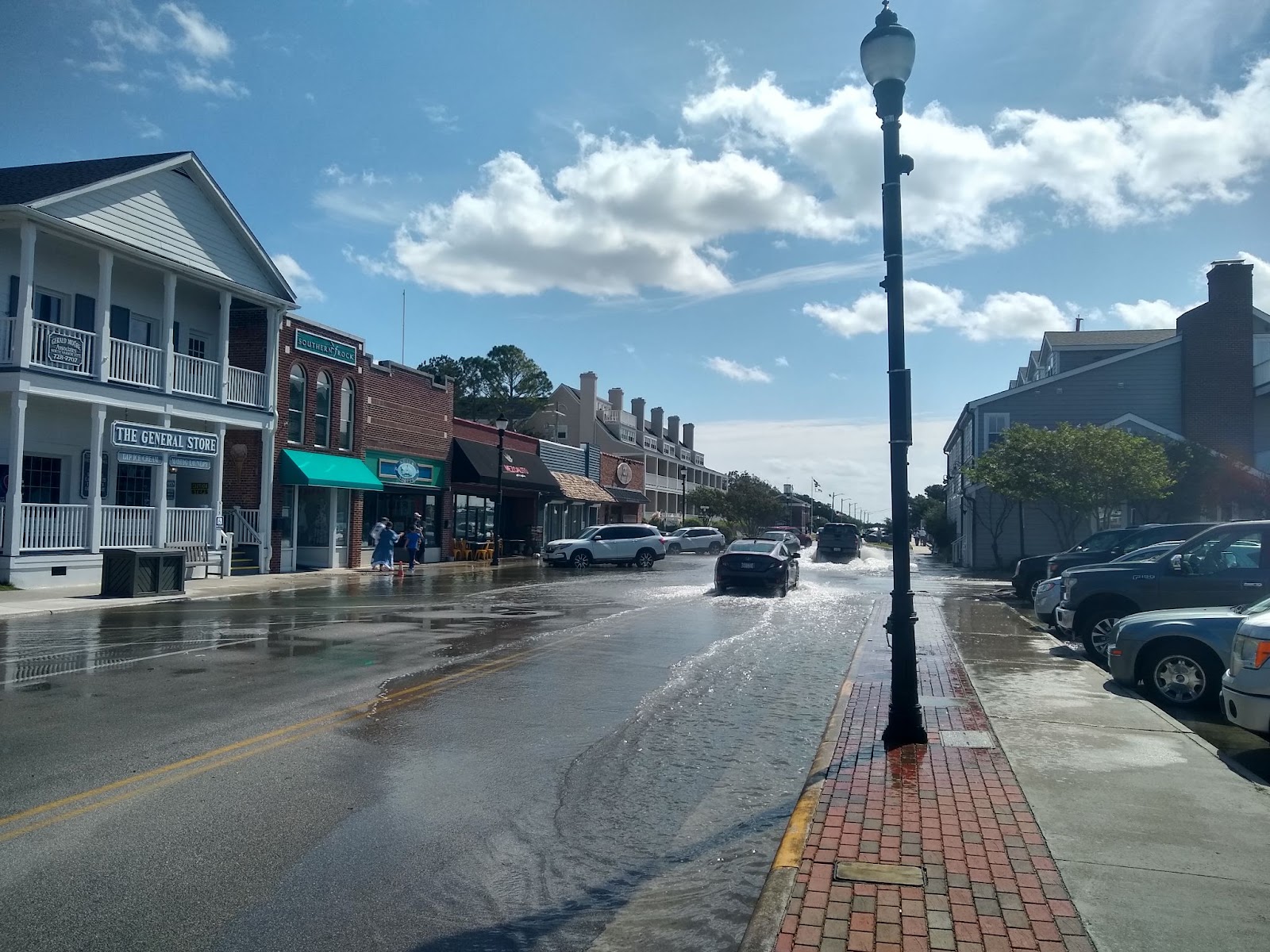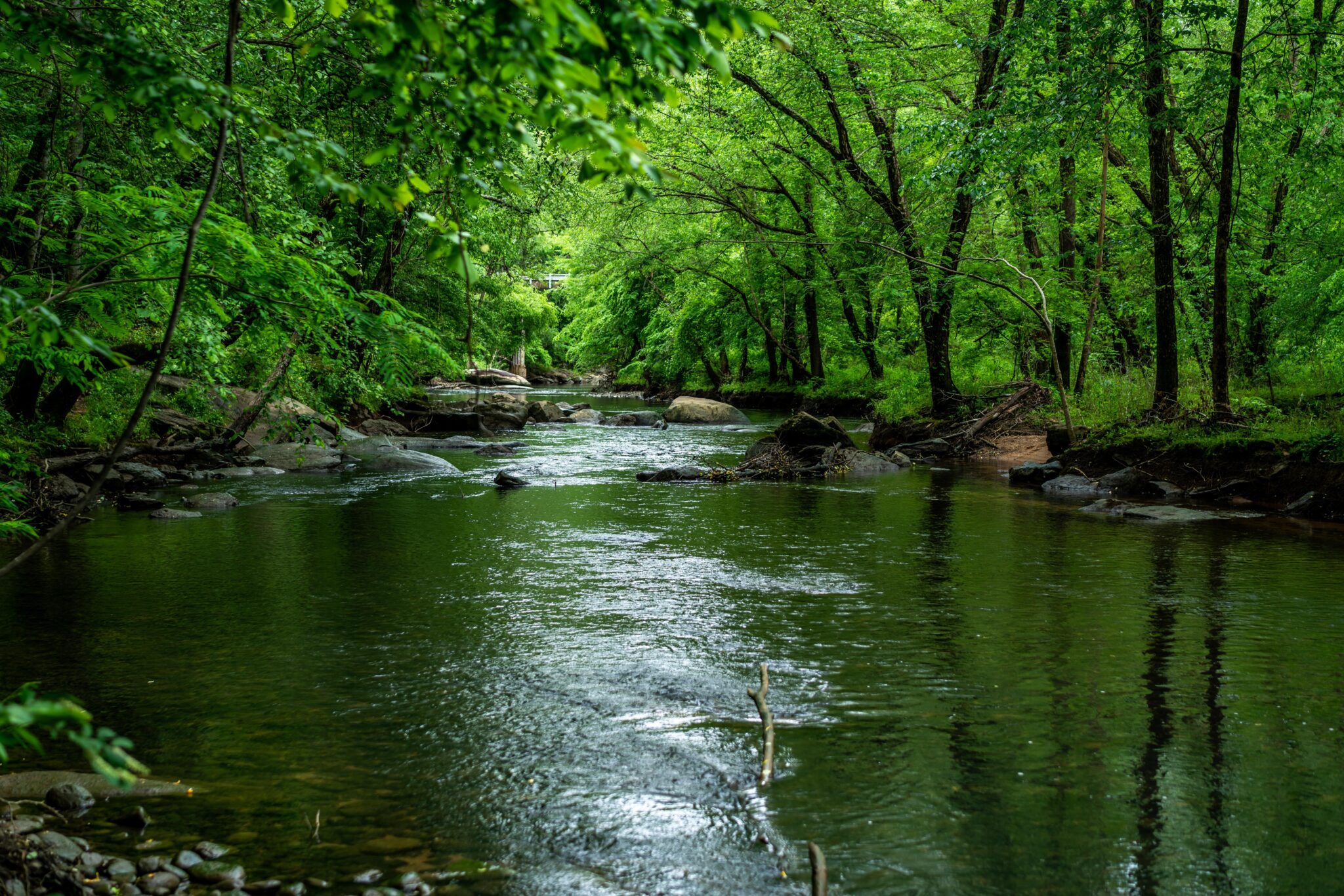New Community Collaborative Projects Support Youth Education, Tribal Knowledge, Air and Water Quality, and More
For immediate release
Contact:
John Fear, jmfear@ncsu.edu
Katie Mosher, kmosher@ncsu.edu
Four new projects in North Carolina are launching this year as part of the Community Collaborative Research Grant Program (CCRG). Projects will support youth education, tribal knowledge, air and water quality, and an exploration of plastic contaminants in headwaters.
North Carolina Sea Grant and N.C. Water Resources Research Institute (WRRI) administer the CCRG Program in partnership with the William R. Kenan Jr. Institute for Engineering, Technology and Science (KIETS).
“The CCRG program continues statewide engagement with this latest round of projects,” says John Fear, deputy director of North Carolina Sea Grant and WRRI. “The ongoing focus on local needs and use of local knowledge sets up these projects for success.”
KIETS associate director Raj Narayan says the CCRG Program provides researchers and community leaders an opportunity to work together to addressing compelling topics and challenges affecting North Carolina.
“The new projects for 2022 continue to focus on issues of importance across our state from the mountains to the coast,” Narayan says.
The new CCRG projects include:
Understanding Plastic Contaminants in Western N.C. Headwaters
Jerry Miller of Western Carolina University and Eric Romaniszyn of Haywood Waterways Association will study transport rates of plastic particles in small headwater basins of the Southern Appalachians. The project will provide hands-on learning experiences for high school students and community members to demonstrate the significance of plastic contamination in freshwater ecosystems and the need for sound management around recycling and disposal.
Youth Education, Career Awareness, and Community Building in Mecklenburg County
Olya Keen of the University of North Carolina at Charlotte and Ebone Lockett of Harvesting Humanity LLC will recruit high school students to co-design and participate in hands-on research that includes elements of laboratory research and field sampling. The students will discover, explore, and work to mitigate issues related to water cycling throughout homes, schools, businesses, and neighborhoods.
Tribal Knowledge from Land and Water in the Waccamaw Siouan Communities
Ashley Patrick Lomboy, Waccamaw Siouan Tribe Member and founder of Waccamaw Siouan STEM Studio, and Eric Britt Moore of the University of North Carolina Wilmington will combine academic and Traditional Ecological Knowledge practices to create an integrated view of soil and water health in the Waccamaw Siouan communities. Armed with data from the project, the Tribe will be able to assess soil and water contamination and identify areas that require remediation.
Harmful Algal Blooms and Air and Water Quality in Northeastern N.C.
Hans Paerl of the University of North Carolina at Chapel Hill’s Institute of Marine Sciences and Colleen Karl of the Chowan Edenton Environmental Group will work with communities in northeastern North Carolina to investigate associations between harmful algal blooms and air and water quality. Findings from this collaboration will benefit local high-school science classrooms, Albemarle Regional Health Services system, state agencies, academic institutions, and the general public.
Narayan says that the four new initiatives involve meaningful engagement of the perspectives and interests of young people and under-represented groups.
“The Kenan Institute for Engineering, Technology & Science at NC State is grateful to be a partner with North Carolina Sea Grant and the Water Resources Research Institute in support of these wonderful projects and thoughtful leaders,” he adds.
Read more about Community Collaborative Research Grants.


